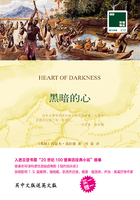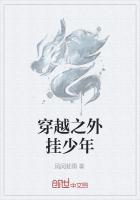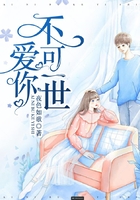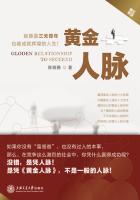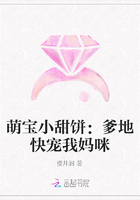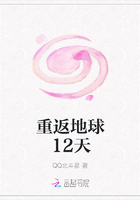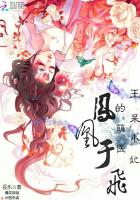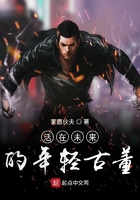Of course I’ve read books about China, like probably everyone else did who plans to work or frequently to travel to China on business, and I am following publications in various media. Only in the course of time I noticed that some statements in some books do not coincide with my observations. These are usually not very significant things, but sometimes they are characterising views of others, and it’s at least entertaining to see what other authors have observed, and perhaps find out why they perceived that differently. Here I will mention a few such examples:
Soup, rice
To the surprise of the respective author, there was in China no rice available in the restaurants and the soup was served at the end of the meal rather than at the beginning, like we Germans are used to.
I cannot confirm either. There is rice available in any restaurant, but you have to ask each time. In most cases, the rice is eaten at the end of the meal, because you do not want to fill the stomach before all the real delicacies, but take only so much rice as you like to top with, at the end. However, this is handled very individually: Many Chinese people eat rice as an aside like Germans would eat potatoes, and some take much rice, others little or none. And of course, many (but not all) restaurants also have rice dishes on the menu (“fried rice with seafood”, for example).
The “soup observation” that I read repeatedly, is interesting by itself and reveals that these writers were living in North China (BeiJing): There, soup will be eaten after the meal, “because you wouldn’t want to pump up your stomach with liquid stuff before you begin with proper eating”. In South China, soup will be eaten as a first serve (if you order it, that’s not compulsory).
Chinese characters
“To avoid confusion, Chinese people often communicate by writing the characters in their hands.”
Not for once I have observed that. I think this is simply a statement that the authors have copied from some previous writer on China. In Japan, this is not unusual, but in China definitely it’s not the case. I have asked many Chinese people, whether they are doing this or have done so before, the universal answer was denial and surprise.
What Chinese people are doing, especially on the phone, is to specify a mentioned syllable (say, “wu”) with a common compound word in which this syllable is also found, especially when passing on a personal name or a street name. For this we have to keep two things in mind: first, that when writing “wu” in phonetic spelling, this syllable may occur in any of four different pitches (wū constant, wú rising, w. lowering and rising again, wù lowering), but even within each of these categories there are many syllables which are pronounced the same way; altogether there are at least 190 characters which are pronounced “wu”, about evenly spread between the four pitches. Second, that contrary to widely held beliefs, Chinese words or phrases are often composed of two syllables, i. e. two characters. This establishes the formation of words.
The context thus tells a Chinese which “wu” is referred to, as the syllable will occur most often in a compound with other syllables, thus forming the actual words and terms. A crude approximation in the English language may perhaps illustrate my intention: the term “television” is composed of Greek tele, “remote, far”, and Latin visio, “I see”. Thus, when taken literally, these words will suggest “I see afar”, but the compound word refers to something entirely different, namely the viewing of programmes in an electrical device that is also called a TV-set. Many Chinese terms are composed the same way, in case of TV: 电视, dìan shì, “elektrisch sehen”.
Thus, if specifying a street or company name on the phone that does contain the syllable “wu”, there is no immediate context. However, the speaker might say: “dòng wù de wù” = “This ‘wu’ in the word for ‘animal’” (dong wu = “animate object”), using a common word where this syllable occurs; which is similar to our habit of spelling a name and adding, “No, it’s not ‘k’, it’s ‘c’, as in ‘Charlie”.’
Books
“Books are read from back to front and from top to bottom.”
That had been so once and is still the case in Japan, but no longer in China. All new books are “normally” printed, and people do no longer write as before from top to bottom, but just like us from left to right.
Craftsmen
“Chinese do everything only half fit, never perfect, Chinese craftsmen always think that somehow it will just about fit.”
I thought French, Italian and Spanish craftsmen were described like that. Or maybe someone was complaining about a number of German craftsmen, as we can find that in Germany too, and quite often so. My observation is this: According to the craftsman, depending on the character and on the way of dealing with the service provider, you will get either a perfect, fast and very cheap labour, or you won’t. It is just as in Germany. If you hire any craftsman, perhaps the cheapest one or one who has no references, or if you treat the craftsman in a patronising manner, you may be served German-style – from the Service Wasteland, as the Germans say – bad, condescending and arrogant.
To me it has not happened yet in China.
China, the Shangri-La of Servicing/rude servicing
“China is a Shangri-La of Servicing.” But, “Why is the servicing so rude?”
Both statements are right. In the first place, China is a veritable Shangri-La of Servicing. The stores are always open. In most cities and in many districts there are small shops that are either open till midnight or even continuously for 24 hours (analogous to the British convenience stores).
In restaurants and shops not only I have noticed, and many Chinese have confirmed that impression, that there is a stark difference between northern and southern China, with ShangHai belonging rather with North China, although is geographically a part of southern China, to be precise, of (South-)East China.
In southern China, except for individual cases, the waiters – as well as the craftsmen – are usually very friendly, helpful, accommodating, come back later and ask if everything is OK or whether you want another beer. They want to sell, and they know: They can do that best if the guest is satisfied, will order sufficiently today and in the future will come back again.





